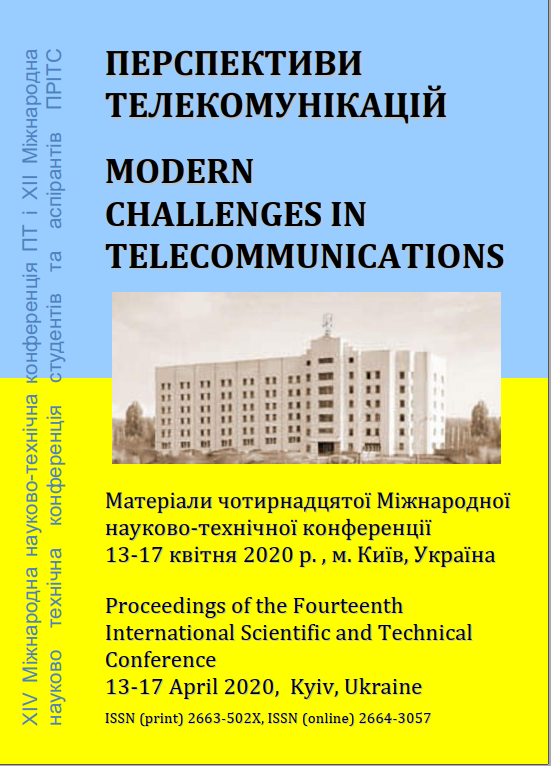ДОСЛІДЖЕННЯ ЕФЕКТИВНОСТІ МЕТОДІВ МОНІТОРИНГУ РУХОМИХ ОБ’ЄКТІВ В СИСТЕМАХ РОЗУМНОГО БУДИНКУ
Ключові слова:
OpenCV, відеоспостереження, комп'ютерний зірАнотація
Стаття присвячена дослідженню алгоритмів виявлення рухомих об'єктів на відеопослідовності. Проаналізовано алгоритми, на основі бібліотеки OpenCV, що можуть бути застосовані в малопотужних системах «розумного будинку» та їх здатність протистояти спотворенням, що можуть бути викликані можливими атаками.
Research of the effectiveness of monitoring
methods for moving objects in smart house systems
The article is devoted to the study of algorithms for detecting moving objects in a video sequence. Algorithms based on the OpenCV library that can be applied in low-power systems of the “smart home” and their ability to cope with distortions caused by possible attacks are investigated.
Посилання
Adrian Kaehler, Gary Bradski. Learning OpenCV 3: Computer Vision in C++ with the OpenCV Library, p.875.
Adrian Rosebrock. Simple object tracking with OpenCV: Веб-ресурс - https://www.pyimagesearch.com/2018/07/23/simple-object-tracking-with-opencv/
Amin Ahmadi Tazehkandi. 2018. Computer Vision with OpenCV 3 and Qt5, p.200.
##submission.downloads##
Як цитувати
Номер
Розділ
Ліцензія
Авторське право (c) 2020 Марина Адамівна Миніч, Сергій Борисович Могильний

Ця робота ліцензується відповідно до Creative Commons Attribution 4.0 International License.
Authors who submit to this conference agree to the following terms:a) Authors retain copyright over their work, while allowing the conference to place this unpublished work under a Creative Commons Attribution License, which allows others to freely access, use, and share the work, with an acknowledgement of the work's authorship and its initial presentation at this conference.
b) Authors are able to waive the terms of the CC license and enter into separate, additional contractual arrangements for the non-exclusive distribution and subsequent publication of this work (e.g., publish a revised version in a journal, post it to an institutional repository or publish it in a book), with an acknowledgement of its initial presentation at this conference.
c) In addition, authors are encouraged to post and share their work online (e.g., in institutional repositories or on their website) at any point before and after the conference.

